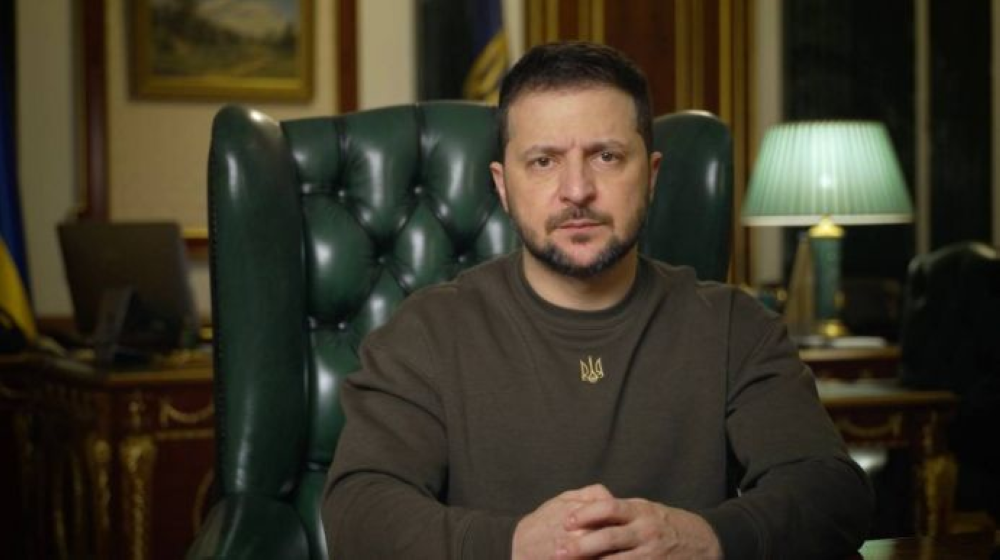With depleted Ukrainian forces very much on the defensive, and a number of Defence Ministry corruption scandals, Ukraine’s chances of success against fighting off Russia are getting slimmer by the day. Zelenskyy recently declared that a ‘new beginning is necessary’. However, it is up for debate whether this was a real statement of claim, or just a method of muting the potential backlash against his firing General Zaluzhny – which has been the most significant change in military leadership since the invasion.
Zelenskyy’s plans to reshuffle the government signify a break in nearly two years of continuity in the wartime administration as he had mostly left in place ministers serving before Russia’s full-scale invasion. Before that his government had been a revolving door of ministers. Zaluzhny has enjoyed huge support from Ukraine’s military and civil society – in a Ukrainian poll released in December, 88% of Ukrainians said that they trusted Zaluzhny, compared with 62% who trusted Zelenskyy. Zaluzhny’s dismissal therefore will undoubtably have a negative impact on military and civilian morale.
The move may also fuel concerns about instability in Ukraine’s wartime leadership and raise questions about whether President Zelenskyy is moving towards becoming an undemocratic leader. Reportedly, Zelenskyy has sought to keep Zaluzhny, whom he has viewed as a potential future presidential competitor, out of the public eye, bypassing him during key moments of the war by communicating orders to the general’s subordinates. The decision in December not to hold an election as scheduled may be a demonstration of the non-democratic nature of the Ukrainian nation now, and further throws Zelenskyy’s legitimacy into doubt. Speculation regarding sincerity and a lack of transparency around decision-making processes is a sign of a trend toward authoritarianism.
However, there is an alternate perspective that views Zelenskyy's actions as an earnest effort to combat corruption within the government. Several senior ministers have been suspended due to corruption allegations, on one hand reflecting the depth of the corruption in Ukrainian ranks but on the other signalling a commitment to addressing these deep-rooted issues. The Security Service of Ukraine (SSU) recently uncovered a scheme involving officials and businessmen embezzling around $40 million through securing advance payment for artillery shells that were never provided. This scandal is not an isolated incident but emblematic of systemic issues plaguing the state's governance. Officials appointed by Zelenskyy have been implicated in corporate raiding and war profiteering since the war began.
One example can be found in Concorde Capital, where Ihor Mazepa, owner of the leading Ukrainian brokerage, was recently detained and later charged with running an illegal scheme to privatise land on the edge of Kyiv over a decade ago. The arrest of Mazepa, someone described as a ‘prominent figure in Ukraine's investment circles’, and the significant bail of 700 million Hryvnyas (US $18 million) initially imposed against him reportedly ‘struck a nerve’ in Ukraine’s business community, where RFE/RL suggests that frustration has been mounting since early 2023 over what some say is rising corruption in law enforcement.
According to recent media, the 47-year-old had become one of the business community's most vocal critics of the security forces and the government after prosecutors last year seized his quarries and raided one of his companies that was developing a natural-gas field. His brokerage rejected the allegations, called his arrest revenge for his public comments and described the search of his office as ‘illegal’.
Another example can be found with Sense Bank of Ukraine, where the former owners are seeking justice through the International Centre for Settlement of Investment Disputes (ICSID) in Washington DC. The rushed nationalisation of the bank and ongoing dispute underscores the need for international intervention to protect businesses and investors from the arbitrary actions of the Ukrainian government.
The reluctance of the Western bloc to provide even further assistance to Ukraine amidst these developments is unsurprising. Western investors are apprehensive about the business environment, and US Republican lawmakers express scepticism due to concerns over corruption and the perceived lack of accountability over aid. However, if Zelenskyy's actions indeed signal a much-needed overhaul, future assistance becomes more probable.
Ukraine now stands at a pivotal moment. To restore Western faith in its leadership and its ability to resist Russian aggression, Zelenskyy and his nation must tread carefully. Transparent and accountable governance, a steadfast commitment to democratic principles, and genuine efforts to eradicate corruption will be imperative to garner and keep international support. The 'new beginning' promised by Zelenskyy must not be mere rhetoric but a tangible commitment to forging a stronger, more resilient Ukraine in the face of adversity.
International / UK/Europe
Zelenskyy promises a ‘New Beginning’ in an integrity crisis of his own making

